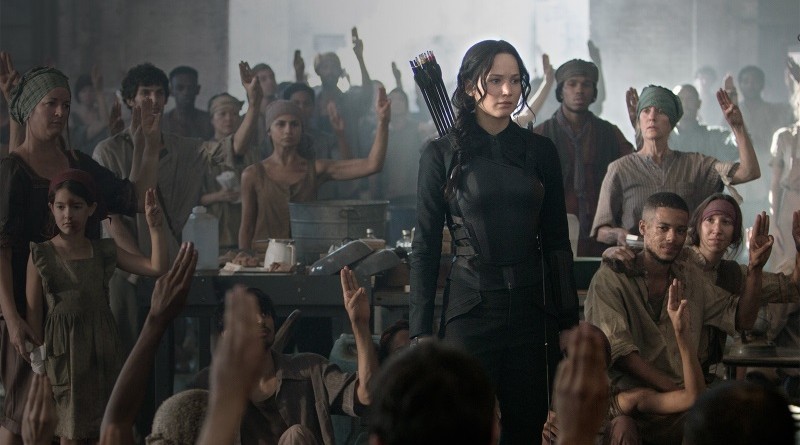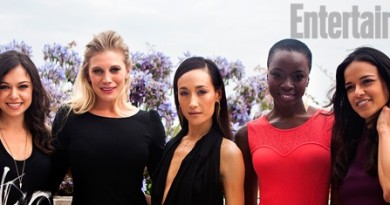The Hunger Games and the Dystopian Works That Came Before It
Guest post by Maria Ramos
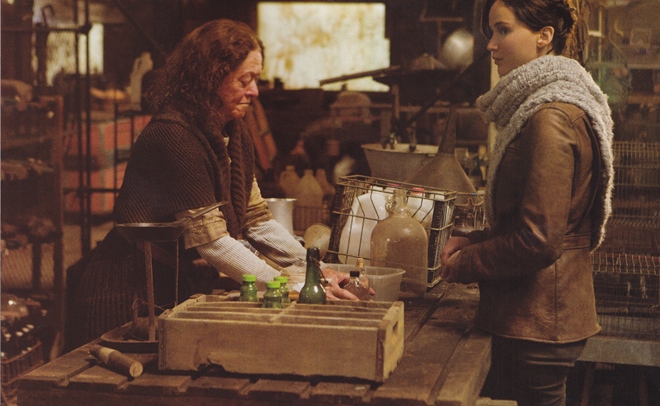 The Hunger Games film series is now considered a pop culture phenomenon, as well as a collection of groundbreaking works in the dystopian genre. The franchise has sparked intense debate among moviegoers and critics alike about its themes and widespread influence. Some see its female protagonist as a nod towards modern day feminism, and others think the film may be a political commentary or religious allegory.
The Hunger Games film series is now considered a pop culture phenomenon, as well as a collection of groundbreaking works in the dystopian genre. The franchise has sparked intense debate among moviegoers and critics alike about its themes and widespread influence. Some see its female protagonist as a nod towards modern day feminism, and others think the film may be a political commentary or religious allegory.
As riveting as it is, though, The Hunger Games is far from being the first influential dystopian film to hit the big screen. Without its predecessors to set the stage and grow a fanbase for dystopian movies, The Hunger Games would not have become such a financial and critical success.
For the few who haven’t seen the series, make sure you catch up with the first three films which are available on Hulu and DTV. It follows protagonist Katniss Everdeen as she and other children are forced to participate in a televised fight to the death. Fans of international cinema will find its premise quite similar to that of the 2000 Japanese film Battle Royale, in which each year, the government forces one lottery-selected junior high class to kill each other until one survivor remains.
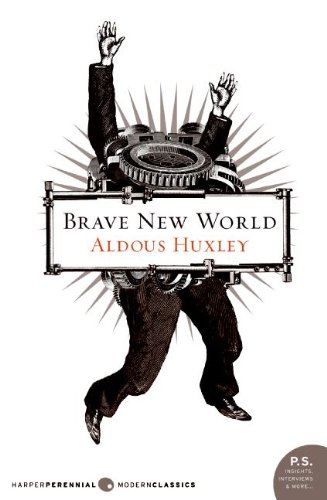 One movie that likely influenced both The Hunger Games and Battle Royale is 1980’s Brave New World, which depicted a totalitarian society set in the future in which the populace has lost control of their individual destinies. Based on the book of the same name written by Aldous Huxley, Brave New World and its themes continue to influence dystopian movies and literature. 1984 – based on George Orwell’s book Nineteen Eighty-Four and, quite appropriately, released to theaters in the year 1984 – is another classic film set in a totalitarian state. The movie’s themes include politics, the idea of freedom, the effects of technology and modernization, class division, and the concept of truth, much like The Hunger Games.
One movie that likely influenced both The Hunger Games and Battle Royale is 1980’s Brave New World, which depicted a totalitarian society set in the future in which the populace has lost control of their individual destinies. Based on the book of the same name written by Aldous Huxley, Brave New World and its themes continue to influence dystopian movies and literature. 1984 – based on George Orwell’s book Nineteen Eighty-Four and, quite appropriately, released to theaters in the year 1984 – is another classic film set in a totalitarian state. The movie’s themes include politics, the idea of freedom, the effects of technology and modernization, class division, and the concept of truth, much like The Hunger Games.
Speaking of truth, few films have touched on the theme as well as Fahrenheit 451 (1966), which details a future in which no books are allowed in society and an oppressive government works to suppress truth in all forms. The protagonist in Fahrenheit 451, a firefighter, initially follows the rules and is a crucial part of the plan to burn all books, until he starts to question whether it’s the right thing to do. Similarly, in The Hunger Games Katniss goes along with the program and fights her peers at first but by the end of the movie she has both shirked the rules of the Games and those of society.
In addition to its striking message, The Hunger Games is known for its graphic violence, which wasn’t always common in dystopian films. However, after A Clockwork Orange (1971) premiered in 1971, all bets were off and violence within the genre was no longer shocking. This Stanley Kubrick cult favorite didn’t just make ample use of violence, it used brutal acts as symbolism, which was quite a daring feat at the time. Without Alex and his droogs dishing out their brand of ultra-violence back then, we may not be able to see Katniss fighting her way through the Games today.
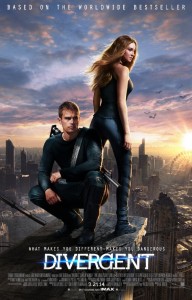 The Hunger Games has certainly built upon themes in older dystopian movies, but it has also influenced contemporary films such as 2014’s The Maze Runner. Like The Hunger Games, The Maze Runner depicts youth who are trapped in an area and forced to find a way to escape with their lives. 2014 also saw the debut of two other films which starred youth as the protagonists fighting against brutal forces in a dystopian world: Divergent and The Giver. Divergent not only has a female lead like The Hunger Games does, it also relies on some of the same themes. The Giver is a dystopian political film that revolves around a 16 year old boy who embarks on a mission to bring truth to his artificially pure community.
The Hunger Games has certainly built upon themes in older dystopian movies, but it has also influenced contemporary films such as 2014’s The Maze Runner. Like The Hunger Games, The Maze Runner depicts youth who are trapped in an area and forced to find a way to escape with their lives. 2014 also saw the debut of two other films which starred youth as the protagonists fighting against brutal forces in a dystopian world: Divergent and The Giver. Divergent not only has a female lead like The Hunger Games does, it also relies on some of the same themes. The Giver is a dystopian political film that revolves around a 16 year old boy who embarks on a mission to bring truth to his artificially pure community.
Clearly, audiences are currently loving movies in which children or very young adults are cast as heroes pit against their evil-doing elders. But these films aren’t light-hearted at all, nor are their messages subtle. They’re dark and powerful, and this type of movie will surely become more common as film audiences have now become accustomed to them. It used to be uncommon for movies to feature children exploring themes such as gender issues, class divides, and politics, but The Hunger Games has shown filmmakers how to effectively pull it off.
The final film of The Hunger Games franchise, The Hunger Games: Mockingjay – Part 2, is expected to be an explosive conclusion to the series. Given the fantastic works that the franchise has looked to for inspiration in the past, it will be exciting to see which influences are present in its last installation. If audiences can be sure of anything, they can expect that The Hunger Games: Mockingjay – Part 2 will continue to do what the series does best: provide an emotion-evoking, thrilling experience which forces its viewers think about the future of humanity long after the movie has ended.
Maria Ramos is a writer interested in comic books, cycling, and horror films. Her hobbies include cooking, doodling, and finding local shops around the city. She currently lives in Chicago with her two pet turtles, Franklin and Roy. You can follow her on Twitter @MariaRamos1889.
Buy your tickets for Mockingjay Part 2 using the Fandango links below and you’ll be supporting the maintenance costs of this site.
Buy tickets now and you could win a trip to London to see ‘The Hunger Games’ live in StageAround™. Ends 11/23 10AM PST. Terms apply.
- Hyperspace Theories: Bad Luck Ghorman - June 2, 2025
- Hyperspace Theories: One Year Later as ANDOR Kicks Off Season Two - May 15, 2025
- REVIEW: Tales of the Underworld - May 4, 2025

